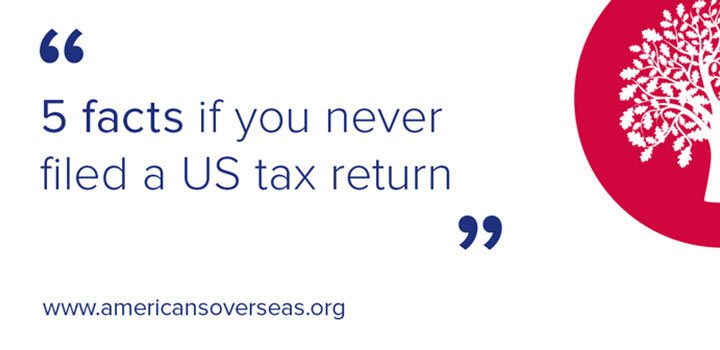
US Government Plans to Reduce US citizenship fees

Summary
Authorities in America have announced that the charge imposed on American citizens living overseas who plan to renounce their citizenship will be reduced from $2,350 to $450
Authorities in America have announced that the charge imposed on American citizens living overseas who plan to renounce their citizenship will be reduced from $2,350 to $450
The intent of lowering US citizenship fees
The U.S. State Department has announced its intention to reduce the fee it charges those seeking to renounce their citizenships to $450 from its current $2,350. This move is a significant step by the U.S. government towards helping expats, especially “accidental Americans,” who have been struggling with their tax reporting obligations since 2010. The fee reduction shows that the right of voluntary expatriation is not to be trifled with and deserves the utmost protection.
The $450 fee was first introduced in 2010 by President Barack Obama. Before then, the US did not charge a fee for processing renunciation requests. The current $2,350 fee has long been a bone of contention, a fee that is more than twenty times the average of other high-income countries.
Lawsuit US citizenship fees
The lawsuit that finally got the State Department to reevaluate the high US citizenship fees was filed by L’Association des Américains Accidentels, a group of accidental Americans. The case is L’Association des Américains Accidentels v. U.S. Department of State, No. 20-cv- 03573, U.S. District Court for the District of Columbia.
Of course, exiting is not just about paying a fee and handing in your passport. You must separately file with the IRS and prove 5 years of IRS tax compliance. Getting into IRS compliance can be expensive and worrisome.
Every three months, the Treasury Department publishes the names of Americans who renounce or give up their long-term green cards. Common reasons for renouncing can be family, tax, and legal complications for people who generally live outside the United States. The official list is published quarterly, but the actual number of expatriates is often assumed to be higher, with many apparently not counted. The IRS tracks Americans who renounce.
FATCA
Some renouncers write why they gave up their U.S. citizenship, but tax considerations are often part of the equation. Expats have long clamored for tax relief, and a major culprit is FATCA, the Foreign Account Tax Compliance Act. This U.S. tax law was passed in 2010 and requires an annual Form 8938 filed with the IRS if your foreign assets meet a threshold. FATCA spans the globe with an unparalleled network of reporting, requiring foreign banks and governments to hand over bank data about depositors.
Non-U.S. banks and financial institutions around the world must reveal American account details or risk big penalties. Some were renounced because of global tax reporting and FATCA. America’s global income tax compliance and disclosure laws can be a burden, especially for U.S. persons living abroad. Americans living and working abroad must generally report and pay taxes where they live. But they must also continue to file taxes in the U.S., where reporting is based on their worldwide income.
A foreign tax credit often does not eliminate double taxes. Then there are annual foreign bank account reports called FBARs. They carry big civil and even potential criminal penalties. Civil penalties can consume the entire balance of an account.
Costly Price of Renouncing American Citizenship
Giving up American citizenship can be costly. To exit, you must prove 5 years of IRS tax compliance, and getting into IRS compliance can be expensive and worrisome. If you have a net worth greater than $2 million or have an average annual net income tax for the 5 previous years of $190,000 or more, you can pay an exit tax.
It is a capital gain tax, calculated as if you sold your property when you left. A long-term resident giving up a Green Card can be required to pay the exit tax too. Sometimes, planning, gifts, separate tax returns for married persons, and valuations can reduce or eliminate the tax. However, plan carefully, and run the numbers, as tax worries can be real, even for those who can sidestep the tax.
Americans Overseas
We, the founders of Americans Overseas, were born in the Netherlands and obtained our American nationality through our (American) mother. When we heard about this for the first time around 2013, we were in total disbelief (it can’t be true!), anger (how can they do this?), fear (am I going to get fined or pick up other problems?), and panic (what should I do?).
It is (unfortunately) true that there is an additional American tax levy. But there’s no information from the local government, and when approached, the consulate referred us to the IRS, and the IRS was impenetrable.
That’s why we started this initiative to help people from all over the world by providing proper information to avoid unnecessary panic and offering help free of obligation and free of charge. If needed, we have a network of affordable professionals (accountants) who can help you with your tax obligations.
If you have more questions about giving up your US citizenship and the US citizenship fees, you can contact us at Americans Overseas.
Contact us for more information
Sources:
Frequently asked questions
Understanding the US tax system, the obligations, and all the additional terms can be difficult. Especially if one lives outside of America. Is your question not answered? Contact us.
-
Who is required to file taxes in the US?
U.S. citizens and resident aliens who live abroad are generally required to file a federal income tax return and pay taxes on their worldwide income.
Read more... about Who is required to file taxes in the US? -
Do US citizens living abroad still have to file taxes in the US?
Yes, US citizens are required to file taxes on their worldwide income, regardless of where they are living.
Read more... about Do US citizens living abroad still have to file taxes in the US? -
How can I cash my US check?
Received an American check? You can cash your check in the following ways: cash the check at your own bank, transfer to another person (endorsement), cash checks using an online service or cash the check by another bank.
Read more... about How can I cash my US check? -
Are there any special tax forms required for US citizens living abroad?
US citizens living abroad may be required to file Form 2555 and/or Form 1116 to claim the foreign-earned income exclusion.
Read more... about Are there any special tax forms required for US citizens living abroad? -
What is FBAR filing?
FBAR (Foreign Bank Account Report) filing is the requirement for certain U.S. individuals and entities to report their foreign financial accounts to the Financial Crimes Enforcement Network (FinCEN) of the U.S. Department of Treasury. The FBAR filing requirement applies to U.S. persons who have a financial interest in, or signature authority over, one or more foreign financial accounts if the aggregate value of those accounts exceeds $10,000 at any time during the calendar year.
Read more... about What is FBAR filing?





